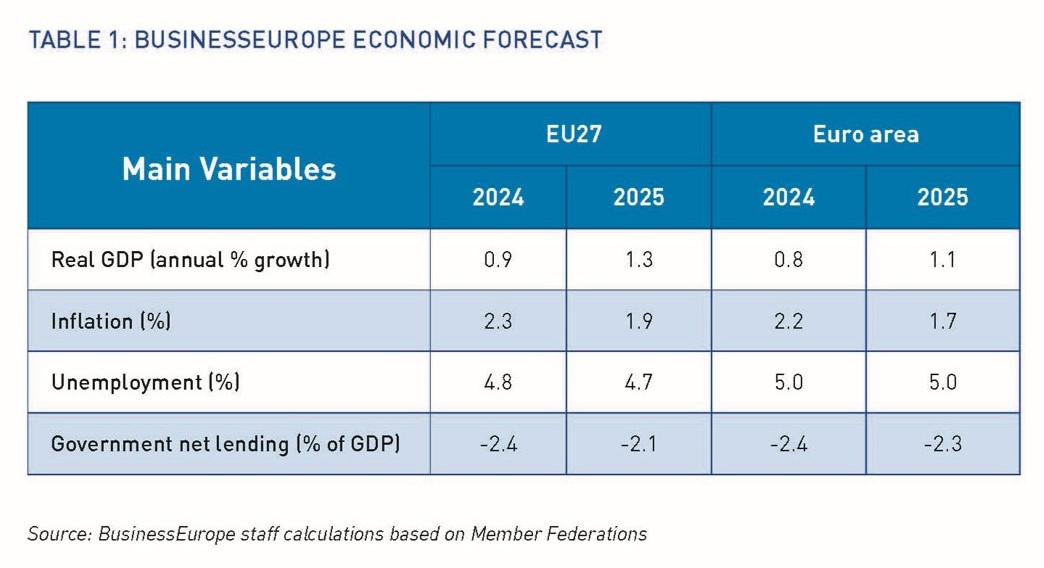Position papers & reports
04 November 2024
BusinessEurope Economic Outlook Autumn 2024 – EU Economy: How to avoid a “slow agony” while facing renewed headwinds
Documents

Economy and competitivenessMacroeconomic policy / Economic Outlook
Economic situation
- From Q2 2022 to Q2 2024, the EU economy grew by just 1.2%, where 11 member states experiencing a growth rate lower than this average. Out of these 11 countries, 7 of them experienced a negative growth rate.
- The EU economy is expected to grow by 0.9% in 2024, increasing to 1.3% in 2025. This is a 0.4 pp downward revision for 2024 in comparison to our Spring Economic Outlook. There are, however, significant downsides risks to the outlook, including some related to electoral outcomes.
- Headline inflation is to continue its steady decline, averaging respectively 2.3% and 2.2% in the EU and euro area in 2024, before going below the ECB’s 2.0% target in 2025.
- Net exports and increased public and private consumption are set to be the main drivers of growth in 2024, with private consumption remaining strong and EU investment growth rebounding to 1.6% in 2025 on the back of lower interest rates, but net exports becoming negative.

Policy recommendations
- As highlighted in the Draghi Report, the long-term fall of the EU competitiveness, resulting in low growth is a structural challenge that must be addressed to assure the future wellbeing of European populations and economies, avoiding a “slow agony” of persistent low growth and even deindustrialisation. Business in Europe faces challenges such as skills and labour shortages, lack of low-carbon energy at competitive prices levels, and a heavy regulatory burden.
- Prices are now expected to fall below the ECB target, due to economic weakness, with the dangers associated with “too low inflation”. Additionally, the fiscal sustainability of the EU is far from assured, given a recent worsening of budget deficits and especially given long term investment needs in many areas and the costs of population aging.
- Completing the Single Market in all its dimensions -real and financial, including the Capital Markets and Banking Unions- remains key for the future prosperity of the EU. A reduction of the regulatory burden and of related energy prices must also be a true policy priority.
Read our Press Release.